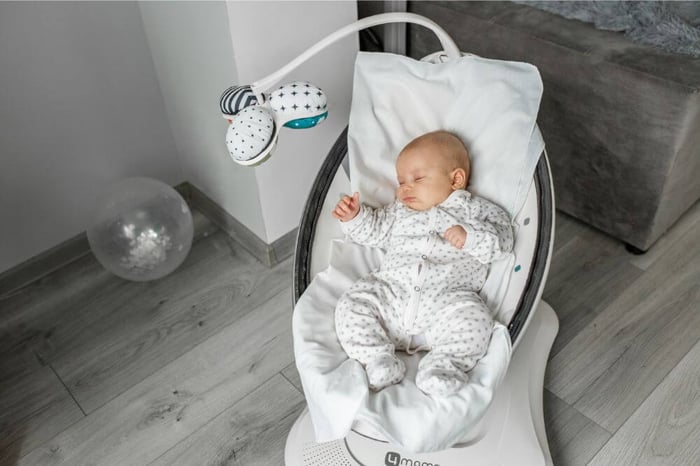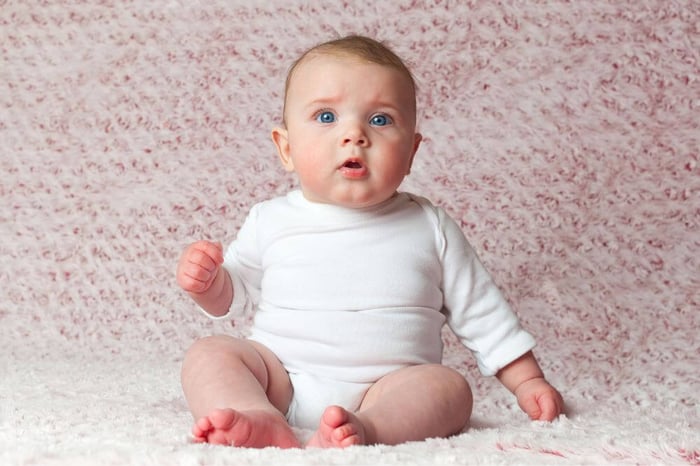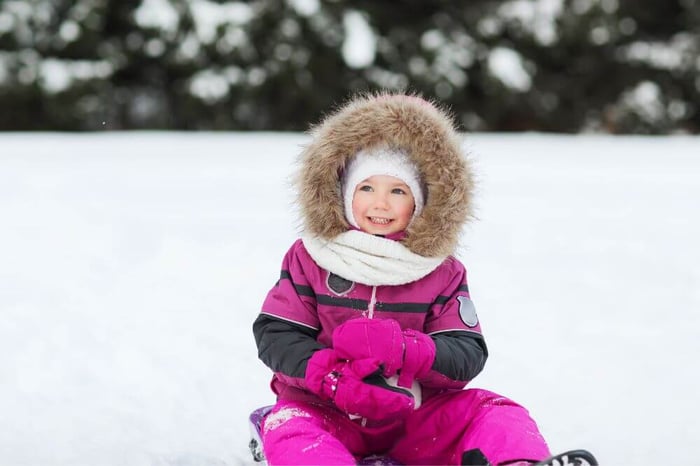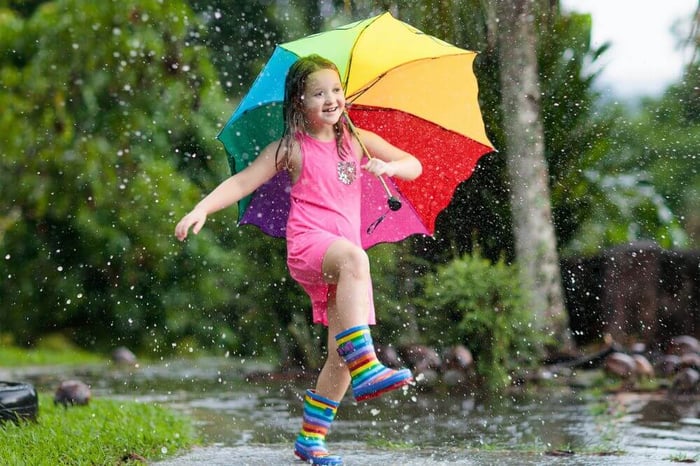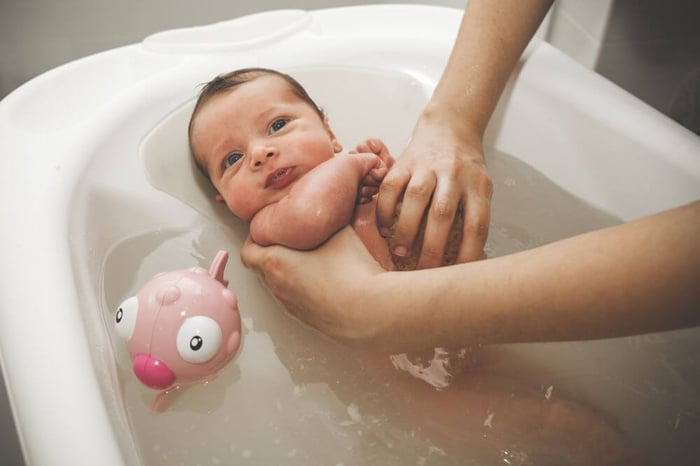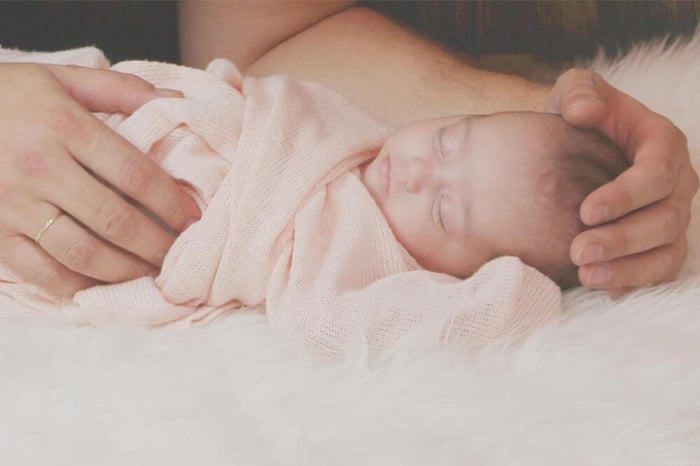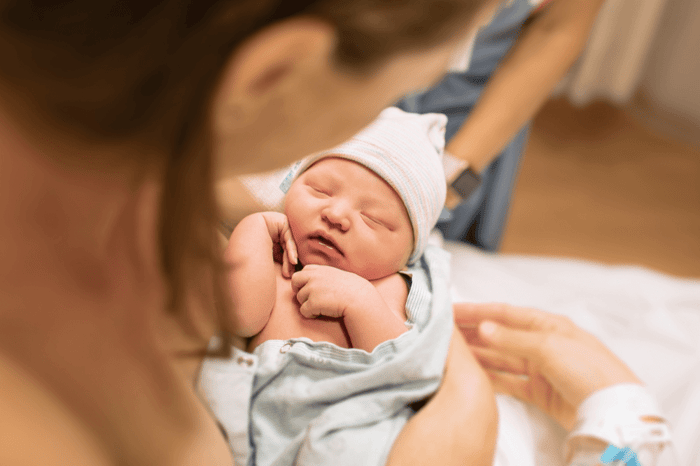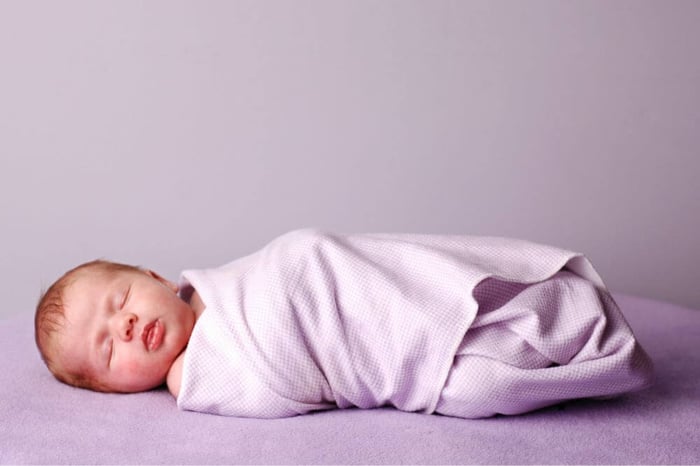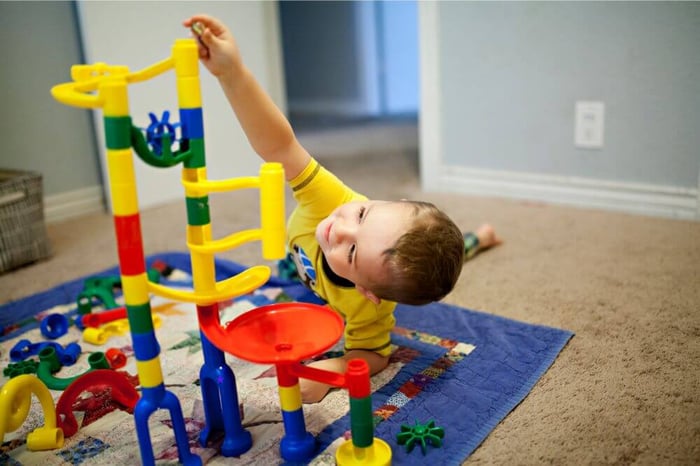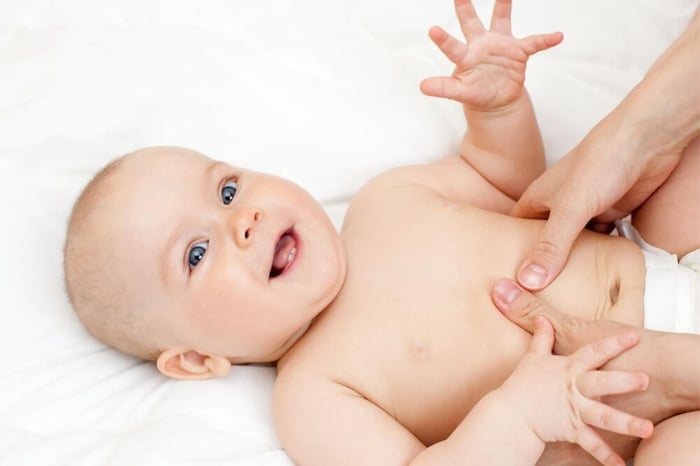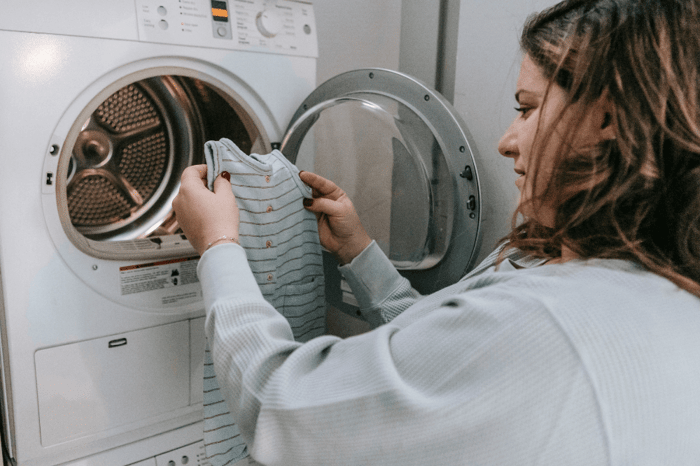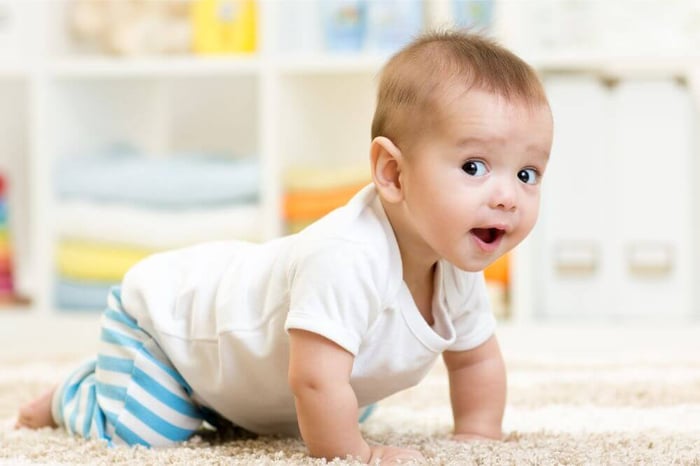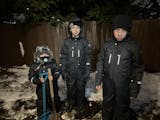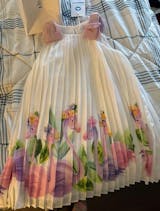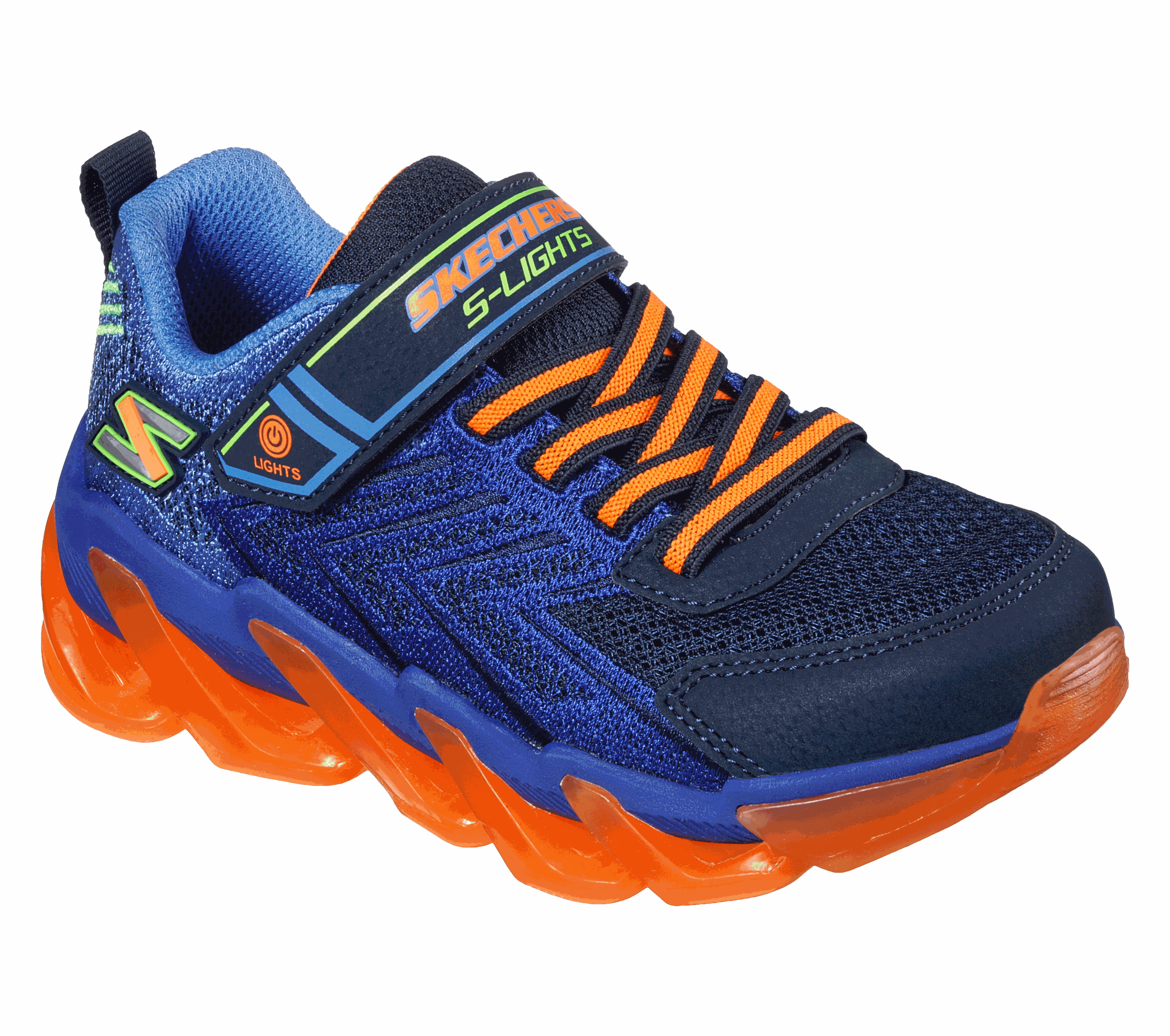Can Newborns Sleep in a Bouncer
Imagine looking at the sight of your newborn drifting to sleep after a long road trip. However, as adorable as it sounds, one constant fear remains: is your baby safe and comfortable sleeping in a bouncer? This brings us to our topic today!
Parents turn to bouncers due to the relaxing effects, which makes it ideal for quick naps. The compact design and steady movements may seem like a perfect solution, but understanding that this is a safe option is crucial, especially during the first few months, as babies grow and develop during this phase. You must go for safe sleep practices to reduce discomfort or injuries before settling your newborn in the bouncer; this calls for understanding the potential risks and expert guidelines.
How Much Sleep Do Newborns Need?
Most adults envy the life of newborns as it’s all about sleeping with a full belly and a small waking window. A newborn sleeps 14-17 hours a day, which varies for every child. It is important to understand that they don’t always sleep straight; this nap occurs in short bursts of 2-4 hours.
Newborns spend more time in lighter stages of sleep, such as Rapid Eye Movement (REM), which is important for brain development. This means their sleep is easily disturbed by noise or movement. As they grow, this sleep cycle gradually increases, and they gain more deeper sleep.
Importance of Safe and Sound Sleep
Although your baby might be sleeping all the time, your baby needs uninterrupted and sound sleep to move through the different stages of sleep. It is important to understand that each stage is important for physical and mental development, and frequent disturbances disrupt the sleep they need.
As much as you focus on giving your baby a quiet environment to sleep, you must ensure their safety too. Make sure your baby sleeps on a flat, firm surface, like a crib or bassinet, with fitted bedding to avoid mishaps.
Are Bouncers Safe for Newborns?
Though these seem like a good option, but they don’t provide a safe sleep environment for newborns. Before you plan on getting a bouncer, there are some risks you need to be aware of.
Safety Concerns
First, you need to know that bouncers increase the risk of suffocation due to improper positioning. Newborns have limited control over their necks and heads, and sleeping in the bouncer slumps their head forward, restricting the airway. This causes difficulty in breathing and can prove extremely dangerous, especially if the baby is left unattended for a long period.
Potential Impact on Development
Extended use of bouncers leaves a deep impact on the newborn’s physical development. Medical experts say babies need a flat surface to develop stronger muscles, and at times, they need to switch positions from back to tummy to get a proper posture and muscle engagement.
Alternative Safe Sleep Solutions
A safe and comfortable environment is the key to sound sleep. Though bouncers seem like a tempting option to soothe babies, let’s discuss some safer options first.
Sleep Sack or Swaddle
Sleep sacks are wearable blankets that keep your baby warm without the risk of suffocation. This is the best option for developing healthy sleeping habits and ensuring your baby always stays on their back.
Now, swaddling, on the other hand, gives you a snug feeling of the womb and security, similar to that of a bouncer. Use a snugly swaddle to wrap your baby in it and reduce the startle reflex that wakes them up from sleep.
Creating a Secure Sleep Environment
A safe sleep environment is important for your baby’s well-being. Use cozy quilts and blankets with strict supervision so that your baby always remains comfortable. Also, keep the area free from pillows, loose bedding, toys, and stuffed animals so they can have plenty of space to move freely.
Developing Independent Sleep Habit
Introducing a crib to your newborn allows them to get naps independently and develop better sleeping habits as they grow. If your baby is used to sleeping in the bouncer, put him into the crib once he has dozed off to give him a safe and free environment.
Using a Bouncer Safely: Safety Tips for Parents
If you plan to use a bouncer for your newborn, then it’s better to do that with some care and consideration. We do know bouncers soothe babies, but by following some guidelines, you can ensure your little one stays secure.
When to Use Bouncers?
Bouncers are perfect for short periods with supervised playtime. This supervision includes closely monitored time, never leaving your little one unattended and making sure they are properly strapped in with the harness it comes with.
After putting your baby in the bouncer, place it on the floor rather than on an elevated surface to avoid the risk of falling. Also, don’t place toys in the bouncer; stay nearby to observe your baby closely.
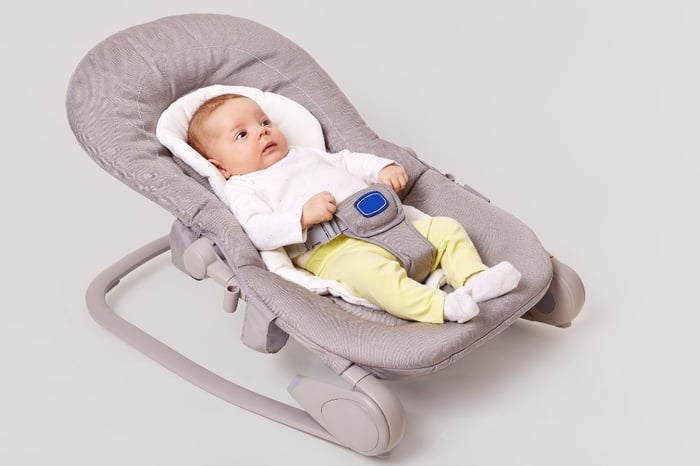
Bouncer Safety Tips
- Close Supervision: Bouncers are designed for supervised use only, and once your baby falls asleep, shift them to a flat, firm surface like a crib or bassinet.
- Place Bouncer on Flat Surface: A flat surface reduces the risk of the bouncer tripping over.
- Limited Time in Bouncer: Limit your baby’s time in the bouncer and make sure they spend most of the time on a flat, firm surface.
- Fasten the Harness: Always secure your baby with bouncer straps to prevent them from sliding into an unsafe position.
- Check for Safety Standards: Before purchasing a bouncer, make sure it meets the latest safety standards and regularly inspect it for any wear or tear.
Must-Have Sleep Accessories
At Jenni Kidz, we have a range of products that are dedicated to promoting healthy and secure sleep habits for your little ones. The sleep sack is the most demanded product that keeps your little one cozy without using loose blankets.
If you prefer traditional swaddling, browse our swaddles that gently wrap your baby, helping them feel secure and calm. Swaddling can reduce the startle reflex that often disturbs newborns' sleep while ensuring they remain in a safe sleep position on their backs.
Final Thoughts
When it comes to your newborn's sleep, safety should always be the top priority. Adhering to safe sleep guidelines, such as placing your baby on their back on a firm, flat surface, can significantly reduce the risk of sleep-related incidents. While bouncers may be convenient for short naps or soothing, they are not suitable for overnight sleep or unsupervised use. The risks of suffocation, improper positioning, and hindered development make them less than ideal for your baby's long-term sleep needs.
Instead of relying on bouncers, consider exploring safer alternatives that promote healthy and restful sleep. At Jenni Kidz, we offer a variety of products, from sleep sacks to swaddles, designed to create a secure and comfortable sleep environment for your newborn. By making informed choices, you can ensure that your baby gets the sleep they need. Ready to give your baby the best start with safe sleep solutions? Explore our collection of sleep accessories and essentials at Jenni Kidz today!
FAQs
Is it okay to let baby sleep in bouncer?
It’s generally not safe to let a baby sleep in a bouncer for extended periods or overnight. While a bouncer can be helpful for soothing your baby or during short, supervised naps, it is not designed to support safe sleep. Bouncers pose risks of suffocation and improper positioning, so your baby should be transitioned to a flat, firm surface, like a crib or bassinet, for longer naps and overnight sleep.
How long can a newborn stay in bouncer?
Newborns should only stay in a bouncer for short periods, ideally no longer than 30 minutes to an hour at a time. Prolonged use of a bouncer can affect your baby’s physical development, and it’s important to avoid relying on it for long stretches of sleep. Always supervise your baby while they are in the bouncer and be sure to move them to a safer sleep space, such as a crib, for naps and nighttime sleep.
What are the risks of letting a baby sleep in a bouncer?
The main risks include suffocation due to improper head positioning and a higher likelihood of accidents, such as falls, if the bouncer is placed on an elevated surface. The American Academy of Pediatrics (AAP) recommends that babies sleep on a flat, firm surface, and bouncers do not meet these safety guidelines.
Can a bouncer affect my baby’s development?
Yes, prolonged use of a bouncer can hinder your baby’s physical development. Bouncers do not offer the flat surface needed for strengthening muscles and developing motor skills. For healthy growth, your baby should spend time on their back and tummy on a firm surface, such as a playmat, when awake and supervised.
What are some safe sleep alternatives to bouncers?
Safe sleep alternatives include using a crib, bassinet or play yard with a firm, flat mattress. Sleep sacks and swaddles are excellent options to keep your baby warm and secure without the risks of loose bedding. Jenni Kidz offers a variety of sleep sacks and swaddles that promote safe sleep practices.

